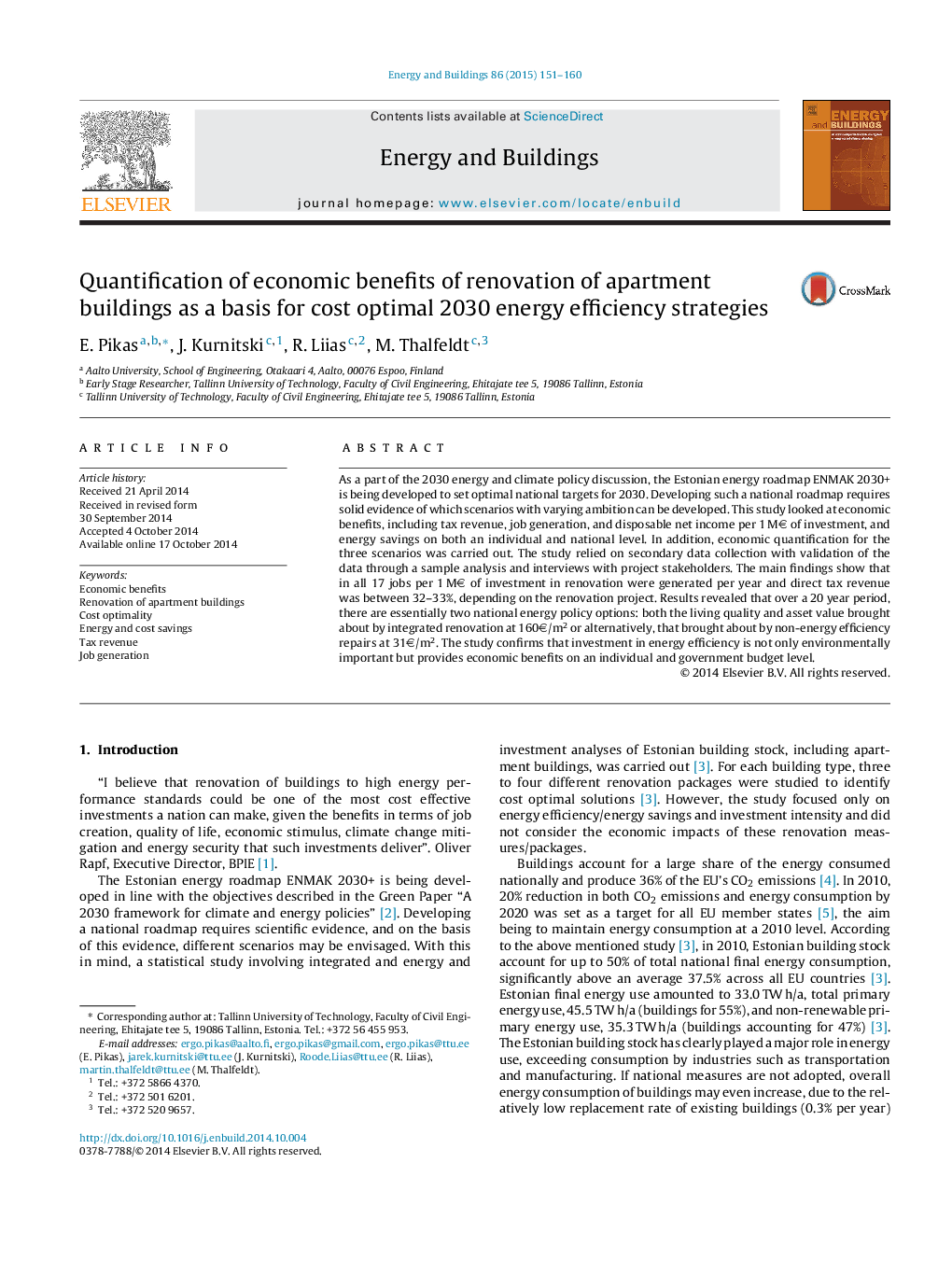| Article ID | Journal | Published Year | Pages | File Type |
|---|---|---|---|---|
| 6732618 | Energy and Buildings | 2015 | 10 Pages |
Abstract
As a part of the 2030 energy and climate policy discussion, the Estonian energy roadmap ENMAK 2030+ is being developed to set optimal national targets for 2030. Developing such a national roadmap requires solid evidence of which scenarios with varying ambition can be developed. This study looked at economic benefits, including tax revenue, job generation, and disposable net income per 1 M⬠of investment, and energy savings on both an individual and national level. In addition, economic quantification for the three scenarios was carried out. The study relied on secondary data collection with validation of the data through a sample analysis and interviews with project stakeholders. The main findings show that in all 17 jobs per 1 M⬠of investment in renovation were generated per year and direct tax revenue was between 32-33%, depending on the renovation project. Results revealed that over a 20 year period, there are essentially two national energy policy options: both the living quality and asset value brought about by integrated renovation at 160â¬/m2 or alternatively, that brought about by non-energy efficiency repairs at 31â¬/m2. The study confirms that investment in energy efficiency is not only environmentally important but provides economic benefits on an individual and government budget level.
Related Topics
Physical Sciences and Engineering
Energy
Renewable Energy, Sustainability and the Environment
Authors
E. Pikas, J. Kurnitski, R. Liias, M. Thalfeldt,
